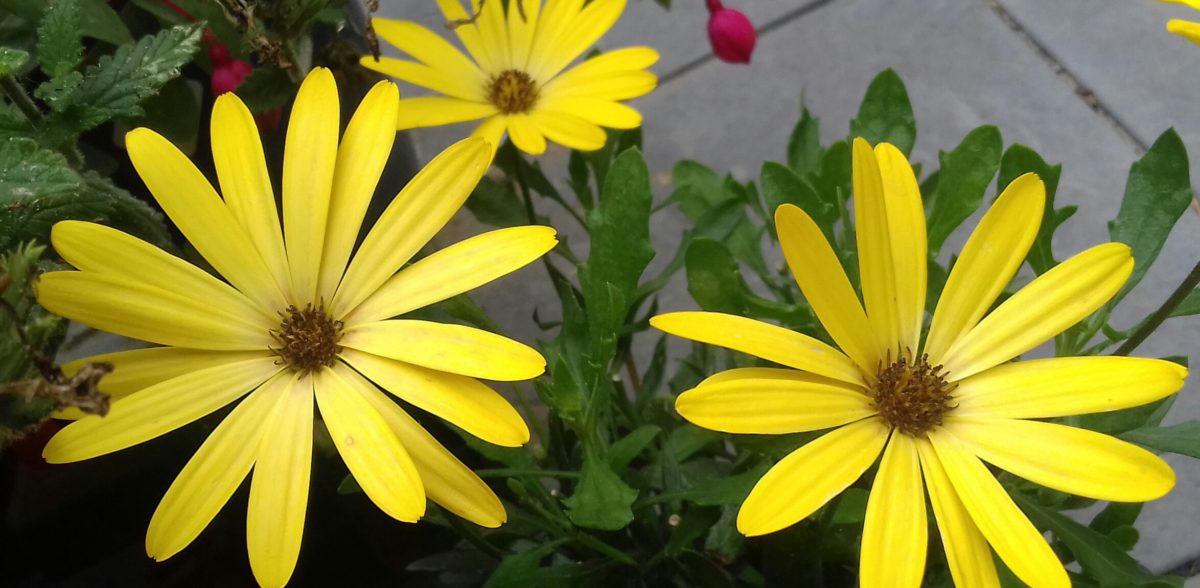Grief is a peculiar animal with an unpredictable schedule and timeline. But its agenda is clear and constant … to express the sadness of the heart as felt in response to the death of one we love. I consciously choose to use the present rather than the past tense here, because we do not cease to love someone simply because they cease to exist in bodily form. As anyone who has seen the body of a deceased person knows, all that makes them who they are, is no longer present in the physical casing of the body.
What I do know as a universal truth about grief through personal experience and professional observation, is that when we fail to allow it sufficient time to be seen, heard and felt, it will find a way to make its presence known. We can work with or against this reality.
It’s not easy to make space for sadness about those who are no longer living when our own lives still require and demand attention. And it’s not all that appealing to set time aside to sit in a space that facilitates pain to come up and out. I say this as a highly trained and experienced therapist for whom no amount of training offers exemption from the emotion of a hurting or a healing heart.
My grief feels like it sits on the sidelines watching and waiting for an opportunity to burst through my barriers of busyness in a way that demands a response. I am grateful (mostly!) that it does for I know that keeping it inside can cause more complicated malfunctions in the system in the future.
Grief is not something that goes away, stops or ends. It is something that lives inside us, changing shape over time like our ongoing relationship with the deceased. I’m not referring to some crazy woo woo shit here but the internalisation of the lived experience of the human who died. We may hear their voice because we know what they would say to us in certain situations based on our experience of them when they were alive.
When we have internalised the voice, character and heart of another in this way, we can draw upon these even in their absence. It is not the same as their physical presence, but it can be a source of comfort and encouragement that lives on. While it is a process and can take time to reach beyond the rawness of the initial loss, the internalised person can continue to speak in to our hearts and our situations here in the present. When I visualise my own support system, I see three beautiful women who have all died but who each continue to be a presence albeit in a different way.
While most of us love the new beginnings that the season of spring is showing all around us, the reality of death exists in its midst. I’ve always felt weird when I’ve seen new crocuses or similar showcasing their beauty and colour amidst piles of dead leaves. This mix of life and death, co-existing so visibly and undeniably can be difficult to digest.
Spring like all seasons reminds us that the natural rhythms of life bring beginnings, middles, endings, rest and renewal or as Easter reminds us, resurrection!
But as humans it can be hard to sit with the sadness that the death of loved one’s leaves. Much easier to direct our attention to who and what is here, especially when these bring us joy. To combine the two is tricky indeed and yet the presence of both gives balance and wholeness!
Whatever our approach, grief will have its way, whether we support or resist it, or like most things in life, we do a bit of both at different times! And while there is no predictable pattern, sometimes, something will split grief wide open allowing it to spill forth. For me, the sight of the purple and green scarves I was playing with in trauma therapy, connected me to the presence of my grief. These are the colours my friend chose for her funeral in February. The next morning when the purple and green parts of my window decoration caught my gaze, I succumbed to the sadness by granting it space and time. Our tears are better out of our systems than stuck within.
It is like the concrete finality of death is too hard and too solid to digest in one or even several sittings. It seems to creep up on us incrementally via the passing of time combined with the lived experience of not seeing the person. Sometimes our eyes may deceive us and we may imagine we see them, or the back of them in a crowd, only to be hit again with the realisation that it is not them, nor can it be. It can be quite incomprehensible to digest the fact that a person really isn’t here now, nor will they be coming back.
As a visual person, I still see my friends face, her expression, her eyes and I hear her tone of kindness, compassion and encouragement. And my heart hurts at the growing knowledge that I won’t see, hear or experience her, in person here, again. It feels especially hard when the deceased person was a source of calmness, comfort and compassion in the face of suffering. Yet now it is the absence of their physical presence that evokes the pain.
And while each relationship and subsequent grieving process is unique, each loss becomes intertwined and linked with all the previous losses of our lives. Life is a series of endings and losses in various forms as well as the ongoing new beginnings. Within a culture that feels inhibited and self-conscious about owning and expressing sadness, we may feel less seen or supported in navigating endings than beginnings.
Yesterday while I was getting organised/procrastinating from creative projects, I took a trip down memory lane. There I unexpectedly stumbled upon a card from this friend and the other friend that made up our group of three. It was a leaving card when I moved on from the organisation where we met some fifteen plus years ago.
Part of my friend’s message was expressing gratitude for the times I had given her a kick up the arse! This still makes me smile even through my tears as I remember some of our conversations to which she was referring! But it also brings forth more tears that these conversations will no longer happen in that form.
The friends who call us out on our bullshit and who value us calling them out on theirs, are invaluable! Even more so in a time and culture where honesty often causes offence or even cancellation! This level of honesty between friends is a precious gift when offered from a heart of love. One which can neither be bought or replaced when lost.
Grief is a tissue filling, time and space requiring bastard. But if the alternative is to avoid intimacy by settling for superficial friendships which lack heart level connection, I’ll take this bastard every time. The heart level hurt is worth all the heart sharing experiences which can continue to nourish.
Grief is a deeply personal experience that provides a pathway only we can walk. There is no right or wrong way, no one-size-fits all format. It is a process which will guide us if we have the courage and commitment to allow our hearts the space to speak and express the sadness within.
Grief changes us and refocuses us on what matters as well as what does not. And it often leads us to others who are also grappling with the hurts of their hearts in response to the losses of their lives. As with all aspects of life, especially the shitty bits, grief can be eased or feel less lonely when shared and understood by those able to engage with and express their own grief. To have people with whom we are safe to be seen and can be vulnerable without being judged, is a special gift indeed.
The process of grief puts us in a place of vulnerability where we need to know to whom we can go and to whom we cannot. Sometimes we need to withdraw from certain spaces – any who judge us for this without curiosity or compassion are not those to share such sadness with.
Sometimes grief is a much more subtle business in response to the invisible losses that our culture often lacks the emotional intelligence to recognise! The losses of what we have longed for but not experienced or the loss of identity/purpose/faith/position/life stage or whatever our experience of being human evokes in us along the way.
When amidst a culture that largely lacks understanding about grief, it is essential to know who can and who cannot walk with you.
I am sending heart felt gratitude to those I can share my heart with and who trust me with theirs. And I send waves of comfort and compassion to all who grieve.



